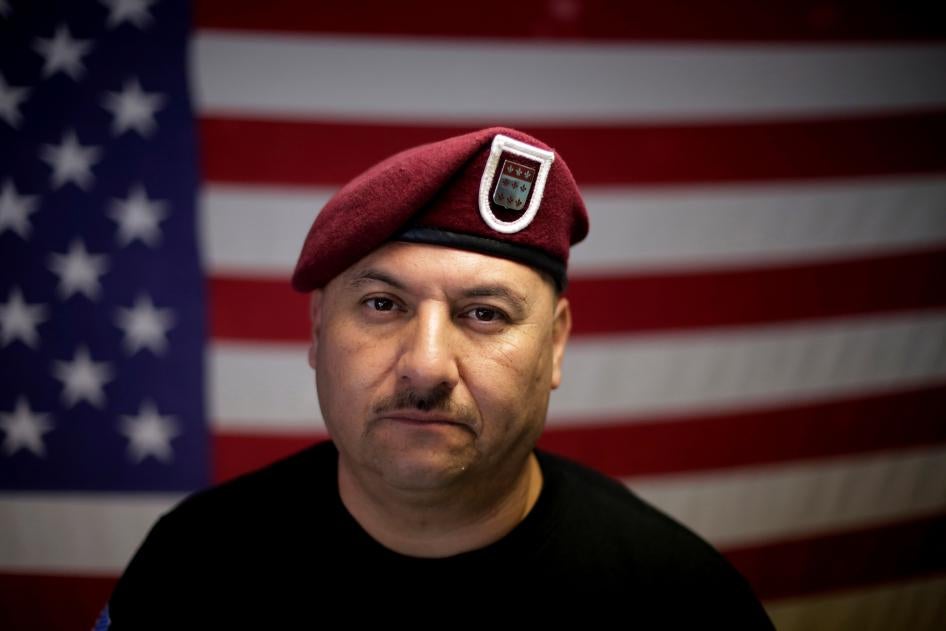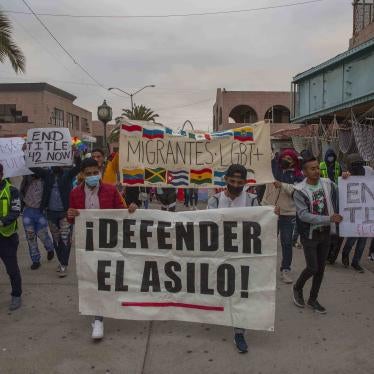California has a chance to prevent unjustly deporting people with deep ties to the United States. The VISION Act, currently before the state senate, which Human Rights Watch co-sponsors, would prohibit California from transferring people eligible for release from the state’s jails and prisons to immigration detention. As a practical matter, the law will provide immigrants subject to deportation a better opportunity to secure legal representation, have better access to community support, and obtain witnesses and evidence – all of which could assist their legal defense against deportation.
If the VISION Act becomes law, immigrants released from detention would have a better chance to explain their many deep ties to the US. They could describe how deportation would sever their relationships with their families or how they have built connections to their community since arriving to the US. Others could explain how their service in the US military deepened their relationship to the country. All of these are human rights arguments against mandatory deportation.
This month, advocates for the VISION act are lifting up the many voices of deported veterans, who, if California passes the legislation, would not have been locked up in detention and would have had a better chance to fight to remain in the country they served and call home.
In 2006, I interviewed immigrant Joe Desiré, originally from Haiti, who had lived in the United States as a lawful permanent resident for 40 years. Desiré was married in 1971 and has four sons who are US citizens, two of whom served in the military. Desiré himself was a veteran after serving from 1970 to 1974. After becoming a drug user while in the military, he was convicted of three offenses and was ordered deported. “I have lived here most of my life…. What I know of Haiti, I’ve read,” he told me. But he had little chance to get the legal and community support needed to fight his deportation. When I spoke with him, he was locked up in a remote federal immigration detention center in Arizona, where his ability to mount a legal defense was greatly impaired.
The VISION act would help veterans like Desiré avoid being locked up far from anyone who could help them. California’s lawmakers, including Senators Tom Umberg, Richard Roth, and Susan Eggman, all military veterans, should support the Act and put California firmly on the side of all immigrants who have strong ties to their communities, including immigrant veterans.










